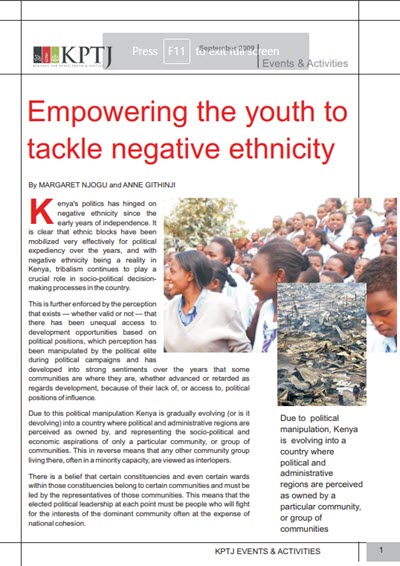Kenya’s politics has hinged on negative ethnicity since the early years of independence. It is clear that ethnic blocks have been mobilized very effectively for political expediency over the years, and with negative ethnicity being a reality in Kenya, tribalism continues to play a crucial role in socio-political decisionmaking processes in the country.
This is further enforced by the perception that exists — whether
valid or not — that there has been unequal access to development
opportunities based on political positions, which perception has been
manipulated by the political elite during political campaigns and has
developed into strong sentiments over the years that some
communities are where they are, whether advanced or retarded as regards
development, because of their lack of, or access to, political positions
of influence.
Due to this political manipulation Kenya is gradually evolving (or is it devolving) into a country where political and administrative regions are perceived as owned by, and representing the socio-political and economic aspirations of only a particular community, or group of communities. This in reverse means that any other community group living there, often in a minority capacity, are viewed as interlopers. There is a belief that certain constituencies and even certain wards within those constituencies belong to certain communities and must be led by the representatives of those communities. This means that the elected political leadership at each point must be people who will fight for the interests of the dominant community often at the expense of
national cohesion.
Kenya’s politics has hinged on negative ethnicity since the early years of independence. It is clear that ethnic blocks have been mobilized very effectively for political expediency over the years, and with negative ethnicity being a reality in Kenya, tribalism continues to play a crucial role in socio-political decisionmaking processes in the country.
